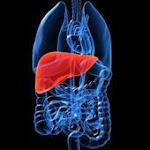Gilead Sciences: Please collaborate with Bristol Myers for the Cure for Hepatitis C NOW!
Sunday, 16 September 2012
Please read and then click here to sign this petition to Gilead Sciences, organised by Margret Dudley via Change.org -
Over 170 million Hepatitis C Virus sufferers and their families were ecstatic when you released the data at the past European Association for the Study of the Liver (EASL) conference about the spectacular results achieved with the drug combination of your GS-7977 and Bristol-Myers’ daclatasvir.
It was nothing short of amazing, a 100% cure rate in genotype 1 patients and 91% in genotypes 2 & 3 without the utilization of Interferon or Ribavirin. Our prayers were finally answered, or so it seemed. Then, to our utter dismay and puzzlement, Gilead Sciences elected not to take these drugs into Phase III trials!
If recouping the investment of $11 billion and making profits are at the forefront of Gilead’s considerations, it would seem that expediting these drugs to market would be the paramount concern. If Gilead Sciences is determined to move ahead without Bristol Myers Squibb’s Daclatasvir and elects to pursue drug trials with GS-7977 + Ribavirin (along with its dreadful side effects) or GS-7977 + GS-5885, then it is a shame that the published results of the drug combination of GS-7977 and Bristol-Myers’ Daclatasvir has brought false hopes to over 170 million HCV sufferers and summarily, left us in a state of despair!
What is to be achieved in future trials with other drugs? How can Gilead Sciences abandon a proven drug combination that has 100% cure rate, with minimal side effects (headaches, fatigue, and nausea)? These are results that are going to be hard to top.
It is estimated that currently only 3% of the HCV population elects to undergo treatment because of the dreadful side effects of Interferon & Ribavirin. Please factor into your considerations that nearly 100% of HCV patients would undergo treatment if these drugs were made available.
If Gilead Sciences delays moving ahead with the efficacious GS-7977 and Bristol-Myers’ daclatasvir trial-proven drug combination, how many more people will advance to cirrhosis and/or liver cancer, how many more will require a liver transplant, and how many more lives will be lost?
Click here to sign this petition, Thank you... Ian
Read more...














